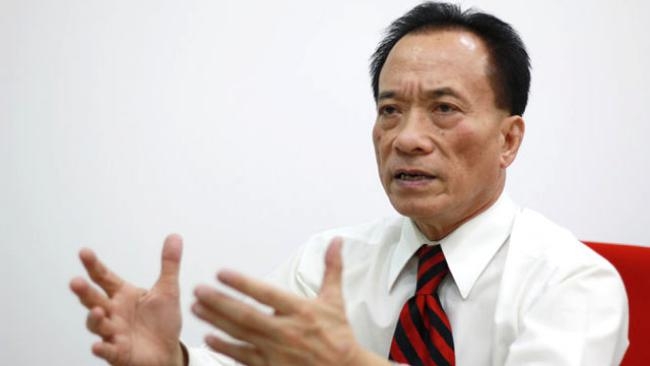Vietnam turns semiconductor vision into action
The global semiconductor industry is being reshaped by geopolitical tensions, shifting supply chains, and the surge of digital technologies.




Joining the Comprehensive and Progressive Agreement for Trans-Pacific Partnership offered Vietnam enormous challenges, which called for the determination and effort of the entire society to overcome and make full use of the benefits it brought about, according to high profile banking expert, PhD. Nguyen Tri Hieu.

The Comprehensive and Progressive Agreement for Trans-Pacific Partnership (CPTPP) was signed in Chile, first ratified by six countries of Mexico, Japan, Singapore, New Zealand, Canada and Australia. On November 12, Vietnam ratified this agreement, which is coming into force on January 14, 2019.
This benchmark has specifically received the attention of Vietnamese economists and businesses. With the participation of 11 Trans-Pacific countries, the CPTPP is considered one of the most comprehensive free trade agreements with the deepest commitment ever.
CPTPP promises Vietnam the best opportunity for connectivity as well as the strong motivation for institutional reform, investment attraction and export. Changing the management and business thinking of enterprises along with promoting the initiative will help businesses grow.
As for export, when CPTPP takes effect, Vietnamese exporters may benefit from the non-FTA markets such as Canada, Mexico, Peru, even Japan. Intra-CPTPP exporters and importers will not be subject to import or export taxes, which will enable Vietnam to boost exports and increase prices.
The CPTPP will also help attract more investment for Vietnam as FDI enterprises will take this opportunity to invest in Vietnam. Besides, this is also a strong driving force for Vietnam's institutional reform. Enterprises can gain access to new technologies, hence raising their production capacity and competitiveness.
However, besides these motivating forces and opportunities, the CPTPP also poses significant challenges to domestic enterprises. In an interview with TheLEADER, PhD. Nguyen Tri Hieu, a finance and banking expert, stated that the CPTPP might open a highly risky business environment for Vietnam.
Accordingly, one of the major risks is that the influx of cheaper-but-of-higher-quality goods from abroad into Vietnam might push domestic firms into difficulties. Free trade agreements would put Vietnam under increasing pressure from increasing competitiveness and narrowing domestic market share.
Moreover, Vietnam's economy must strive to keep up with and adapt to the development of the world economy. Of the 11 CPTPP countries, only Vietnam is developing a "socialist-oriented market economy"; the rest are capitalist.
This makes a big difference between Vietnam and other pure market economies of the CPTPP members. Therefore, striking a balance and minimising the possible risks while maintaining the current economic orientation of Vietnam call for the joint effort of the Government, the National Assembly and the society.
Sharing the same opinion, PhD. Can Van Luc, Chief Economist of the Bank for Investment and Development of Vietnam (BIDV), stated that it was undeniable that the CPTPP brought various advantages to the Vietnamese economy. However, the challenges were also huge.
Firstly, the competitiveness of Vietnam itself and its enterprises were still low. Therefore, the possibility of domestic enterprises joining and competing in the value chain in the global supply chain was faint. It takes time for Vietnamese enterprises to gradually increase their production capacity.
Secondly, some industries such as textiles and seafood may enjoy export benefits when joining CPTPP due to tax exemption. However, the enormous difficulty now lies in strict requirements on the origin of goods. Luc expected this issue to remarkably change in the future to conform to the CPTPP standards.
Thirdly, risks would inevitably spread from any CPTPP country to other CPTPP members. This will affect the autonomy of countries when deciding on their development policies.
Fourthly, institutional reform should be promoted; and last, Vietnam’s human resources were still of low quality, which could not meet the demand for development.
Suggesting some immediate solutions to overcome those difficulties and making the most out of the opportunities offered by the CPTPP, expert Nguyen Tri Hieu emphasised that enterprises must first understand the CPTPP. Otherwise, they would definitely miss the potential opportunities.
Besides, according to Luc, the Government should promote communication about the regulations of the CPTPP as well as its opportunities and challenges. Additionally, the Government and the National Assembly should focus on institutional reform and investment environment, which might help raise the competitiveness of domestic enterprises in the context of economic integration.
The global semiconductor industry is being reshaped by geopolitical tensions, shifting supply chains, and the surge of digital technologies.
The change in APA approval authority is expected to shorten processing time and enhance business proactiveness in international tax negotiations.
As hybrid cloud systems grow more complex, Vietnamese enterprises are struggling to detect cybersecurity threats moving laterally within their own networks.
The submission of the draft resolution on Vietnam’s international financial center to the National Assembly heralds a new developmental era for the country.
More than just running a 5-star resort, Kristian Petersen is redefining the art of hospitality with a humane and sustainable leadership philosophy.
For Tyna Huynh, co-founder of Drinkizz, organic is not just a food choice but a way of life that fosters a deep connection between people, nature and community.